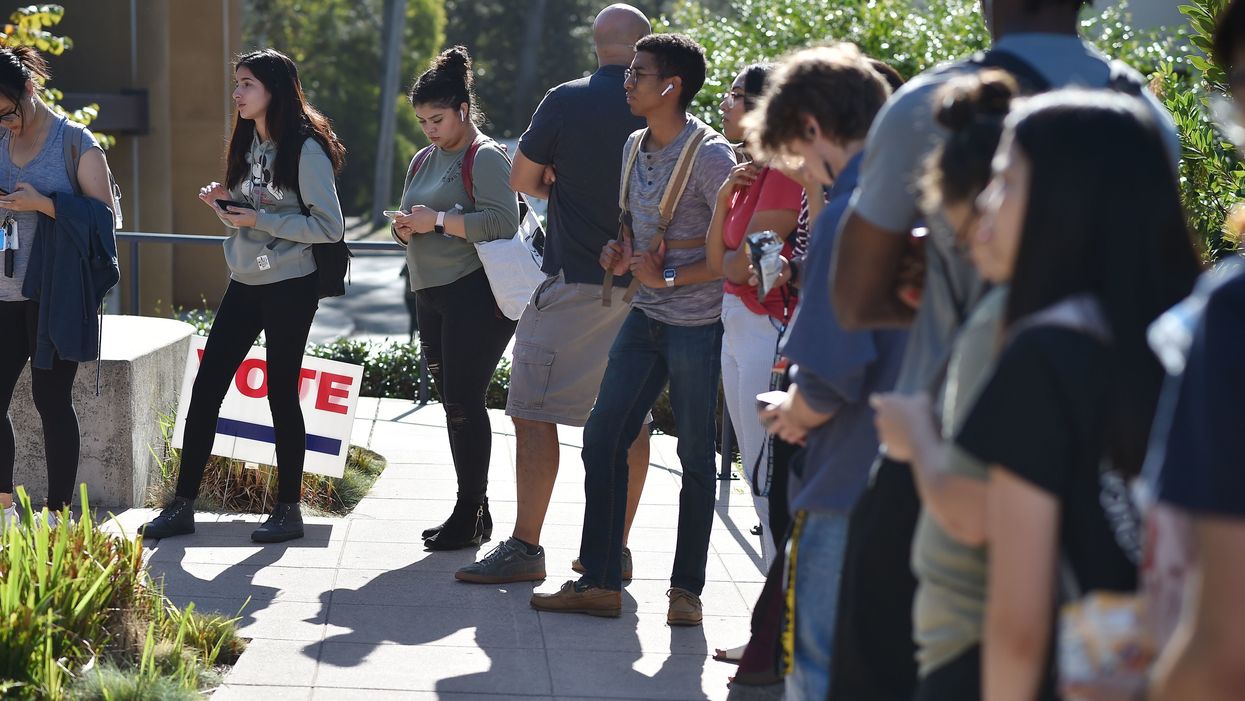Young voters are interested and engaged, and they may finally assert their power in the fall election, according to a new poll released Tuesday that finds youth activism at record highs.
And that looks like good news for Democrats, particularly former Vice President Joe Biden, who now holds a 34-point lead over President Trump among younger voters, according to researchers at Tufts University focused on politics and young adults. By comparison, Hillary Clinton held an 18-point margin over Trump when Tufts took a similar poll during the 2016 presidential campaign.
The results are significant because early expectations of a heavy turnout by young voters in prior elections haven't regularly materialized.
Two years ago, for example, about a third of voters younger than 30 cast ballots in the congressional midterm — a level of turnout that trailed every other age group, but still was a big jump from the level of youth voting in the 2014 midterm.
The new poll does contain some warning signs for Democrats, and the Biden campaign in particular. Nearly one in five young voters said they would prefer someone other than the two ready to claim the major party nominations this summer.
And fewer than half reported being contacted by a political party so far, which is a strong predictor of voter turnout.
Regardless, the survey shows a huge increase in youth activism, including:
- The percentage of youth who say they are protesting (27 percent) is five times the level of four years ago, a clear reflection of the rallies in hundreds of big and small cities nationwide to protest police brutality and systemic racism in the month since George Floyd's death.
- Half of voters in their teens and twenties say they have encouraged other people to vote — and a quarter of them reported they have helped to register voters. Both percentages are far higher than before the last presidential election.
- More than 8 in 10 said they believe young people have the power to change the country and about the same percentage said the coronavirus pandemic has helped them realize that politics impacts their everyday lives.
"It is clear that 2020 could be a watershed election for youth participation," said Alan Solomont, dean of the Tisch College of Civic Life at Tufts, which conducted the poll.
But the survey also found young citizens need help in navigating the logistics of voting.
A third of them said they did not know whether they are allowed to register online. And, of those who answered the question, one-fourth got it wrong. (The correct answer is online signups are allowed in all but nine states.)
Most critically, only one in four reported ever having voted by mail before. That's in line with the number nationwide in recent elections, but the share is sure to surge this fall because of Covid-19 — although by how much will depend on voter education as well as whether states change their rules or spend more to smooth their systems
"We must convey clear and accessible information about when, how and where young people can register and vote and actively reach out to you," said Kei Kawashima-Ginsberg, director of the Center for Information & Research on Civic Learning at Tufts.
The center commissioned the poll from Gallup, which interviewed 2,232 adults ages 18 to 29 in the four weeks ending June 18. The poll's margin of error was 4.1 percentage points.




















